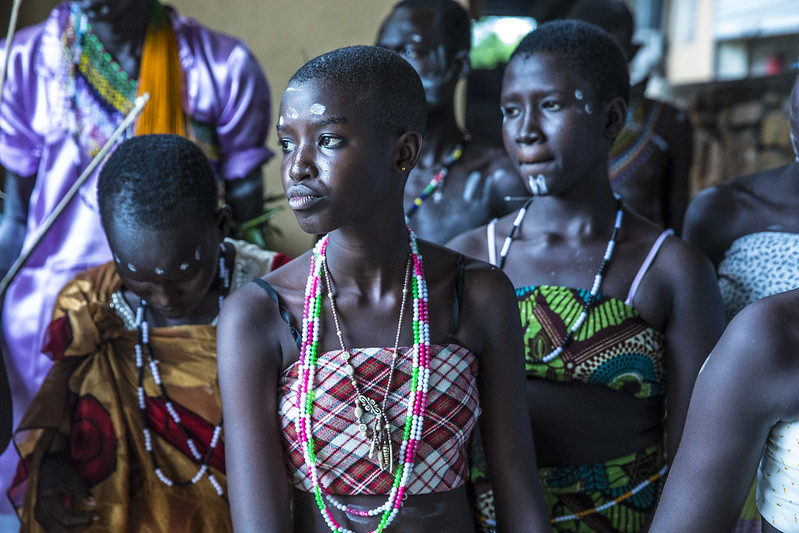Period Poverty in Sudan: The Impact of USAID
 Period poverty refers to the challenges that women and girls face when they cannot afford basic menstrual items such as pads, tampons, underwear and pain relief. It is common both in developed and developing states worldwide and has negative impacts on women and girls’ health, education, career opportunities and self-esteem. Period poverty in Sudan affects a huge number of people, and a lack of basic health services, social taboos, gender inequalities and discriminatory social norms further worsen the situation. In Sudan, women and girls often suffer in silence during their menstrual periods due to widespread ignorance surrounding menstrual health and hygiene. Women often face isolation from their families and communities during their menstrual periods and have to resort to unsanitary practices.
Period poverty refers to the challenges that women and girls face when they cannot afford basic menstrual items such as pads, tampons, underwear and pain relief. It is common both in developed and developing states worldwide and has negative impacts on women and girls’ health, education, career opportunities and self-esteem. Period poverty in Sudan affects a huge number of people, and a lack of basic health services, social taboos, gender inequalities and discriminatory social norms further worsen the situation. In Sudan, women and girls often suffer in silence during their menstrual periods due to widespread ignorance surrounding menstrual health and hygiene. Women often face isolation from their families and communities during their menstrual periods and have to resort to unsanitary practices.
Conflicts and natural disasters have also resulted in there being around 3.7 million internally displaced people (IDP) in Sudan, a situation that disproportionately affects women and girls, according to 500 Words Magazine. Displacement exacerbates gender-specific challenges such as period poverty, with menstrual products becoming even less accessible.
The Consequences
According to ActionAid, girls in sub-Saharan Africa miss around 20% of the school year due to menstruation, through fear of humiliation or isolation, 500 Words Magazine reports. The consequences of a poor education are commonly linked to poverty, and so period poverty can have long-lasting effects on young girls’ opportunities.
Sanitary products are also extremely difficult to access in rural areas of Sudan, and so women and girls have to use alternatives such as old pieces of cloth or other domestic items, which can lead to infections, according to 500 Words Magazine.
The risk of infection is even higher for women and girls who have been subject to Female Genital Mutilation (FGM). According to the UNICEF, approximately 87% of women and girls aged 15 to 49 in Sudan have undergone some form of Female Genital Mutilation, as of 2017.
The Work of World Vision
World Vision has been doing some fantastic work to alleviate some of the impacts of period poverty in Sudan. With help from funding from USAID-Bureau and in collaboration with various ministries and UNICEF, World Vision sought to initiate the production of reusable sanitary towels in Sudan for the first time.
The organization conducted an initial pilot in Blue Nile state, where it developed three designs from local cotton fabric. World Vision distributed 200 samples of each design to 100 girls across four localities. Later it carried out a user survey to ensure that these girls could input into the final designs. Public health officers then trained the girls to properly and safely use reusable sanitary towels.
According to World Vision, six groups of 15 women each from six localities then received training and start-up kits for making the products. They went on to make 5,000 pieces, “which World Vision purchased and distributed to 500 girls.”
With further funding from UNICEF, Global Affairs Canada (GAC) and USAID BHA, the project is now going further and many of the initially trained women are training other women’s groups in South Kordofan, South Darfur and East Darfur, targeting 5,000 girls.
The Fantastic Success
The fantastic success of the reusable sanitary towels initiative in Sudan demonstrates the enormous impact that USAID funding can have to fund projects like World Vision’s and provides optimism for putting an end to period poverty in Sudan and elsewhere in the developing world. However, period poverty remains a significant issue across the globe, and in Sudan in particular, demonstrating the importance of USAID in alleviating poverty worldwide.
– Ethan Leyden
Photo: Flickr
